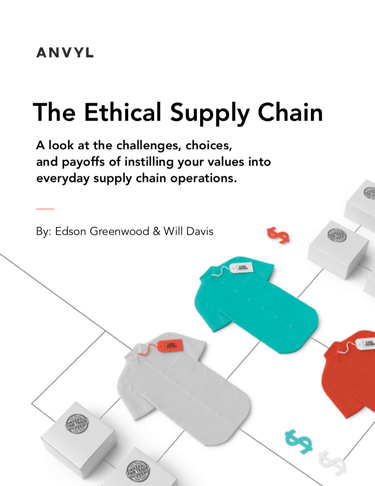In today’s globalized world, businesses are increasingly realizing the importance of sustainable and ethical supply
chain practices. With growing concerns about environmental degradation and social injustices, companies are under
pressure to ensure their supply chains are environmentally friendly and adhere to ethical standards. This article
will explore the concept of sustainable and ethical supply chain practices and highlight their benefits.
What are Sustainable and Ethical Supply Chain Practices?
Sustainable supply chain practices refer to the integration of environmentally friendly strategies throughout the
entire supply chain, from sourcing raw materials to manufacturing, production, and distribution. This includes
minimizing waste, reducing carbon emissions, and promoting the use of renewable energy sources. Ethical supply chain
practices, on the other hand, focus on ensuring fair labor conditions, human rights protection, and ethical sourcing
of materials, particularly in the case of global supply chains that often involve multiple countries and
stakeholders.
The Importance of Sustainable and Ethical Supply Chain Practices
Implementing sustainable and ethical supply chain practices brings numerous benefits for businesses, society, and
the environment. Firstly, it helps to mitigate environmental risks and reduce the carbon footprint of the supply
chain. By using energy-efficient transportation methods, optimizing packaging materials, and implementing
eco-friendly manufacturing processes, companies can significantly reduce their impact on the environment.
Benefits for Businesses
Adopting sustainable and ethical supply chain practices can also create a competitive advantage for businesses.
Consumers are becoming increasingly conscious about the environmental and social impact of the products they buy,
and they prefer companies that demonstrate responsible practices. By aligning with sustainable and ethical
principles, businesses can attract more environmentally conscious customers and enhance their brand image.
Benefits for Society
Sustainable and ethical supply chain practices have a positive impact on society as well. Companies that prioritize
fair labor conditions and promote responsible sourcing contribute to improving working conditions globally. By
ensuring ethical treatment of workers and offering fair wages, businesses can help eradicate child labor, forced
labor, and other labor rights violations that are prevalent in some industries and regions.
Benefits for the Environment
Perhaps the most crucial aspect of sustainable and ethical supply chain practices is their positive impact on the
environment. By reducing greenhouse gas emissions, conserving natural resources, and promoting sustainable
practices, companies play a significant role in combating climate change and preserving the planet for future
generations.
Examples of Sustainable and Ethical Supply Chain Practices
Many companies are already implementing sustainable and ethical supply chain practices as part of their corporate
social responsibility initiatives. Here are some examples of such practices:
Using renewable energy sources, such as solar or wind power, to reduce reliance on fossil fuels.
Implementing recycling programs to minimize waste and promote the use of recycled materials in packaging.
Partnering with suppliers who adhere to fair labor practices and ethical sourcing guidelines.
Optimizing transportation routes to reduce fuel consumption and emissions.
Investing in technologies that improve energy efficiency and reduce water consumption.
Supporting local communities by providing employment opportunities and contributing to local development.
Conclusion
Sustainable and ethical supply chain practices are vital for businesses to thrive in today’s socially and
environmentally conscious world. By implementing these practices, companies can benefit from a positive brand image,
attract more customers, and contribute to the well-being of society and the planet. It is crucial for businesses to
integrate sustainable and ethical principles into their supply chains and work together towards a more sustainable and
equitable future.
